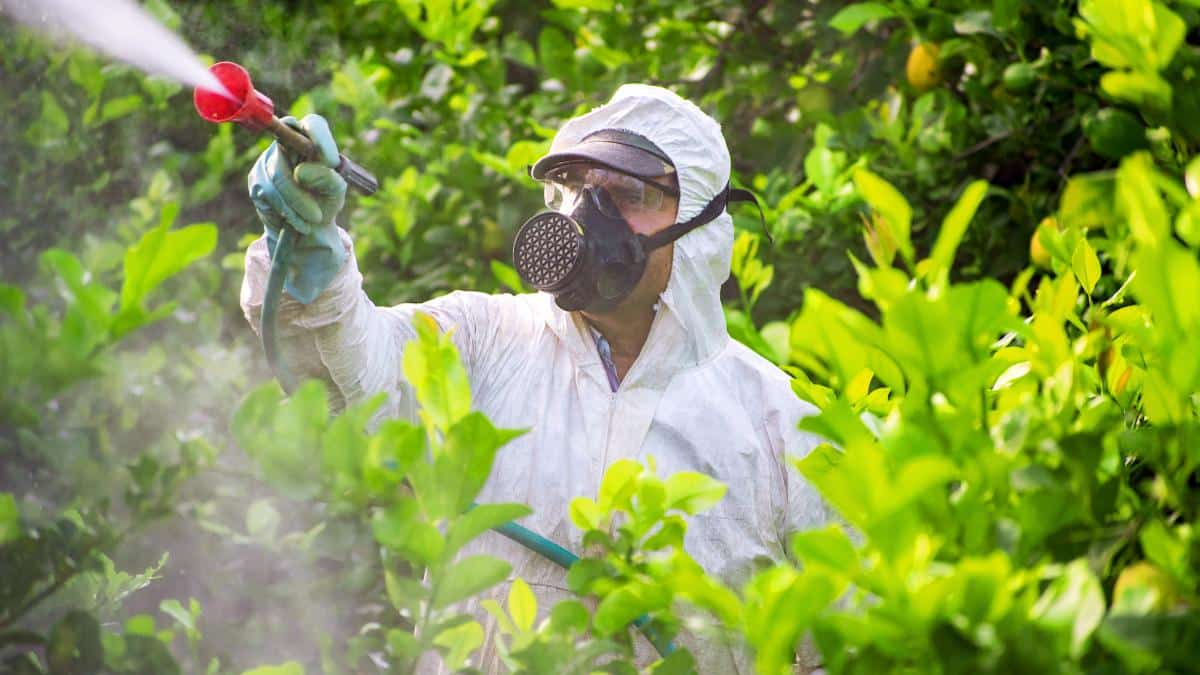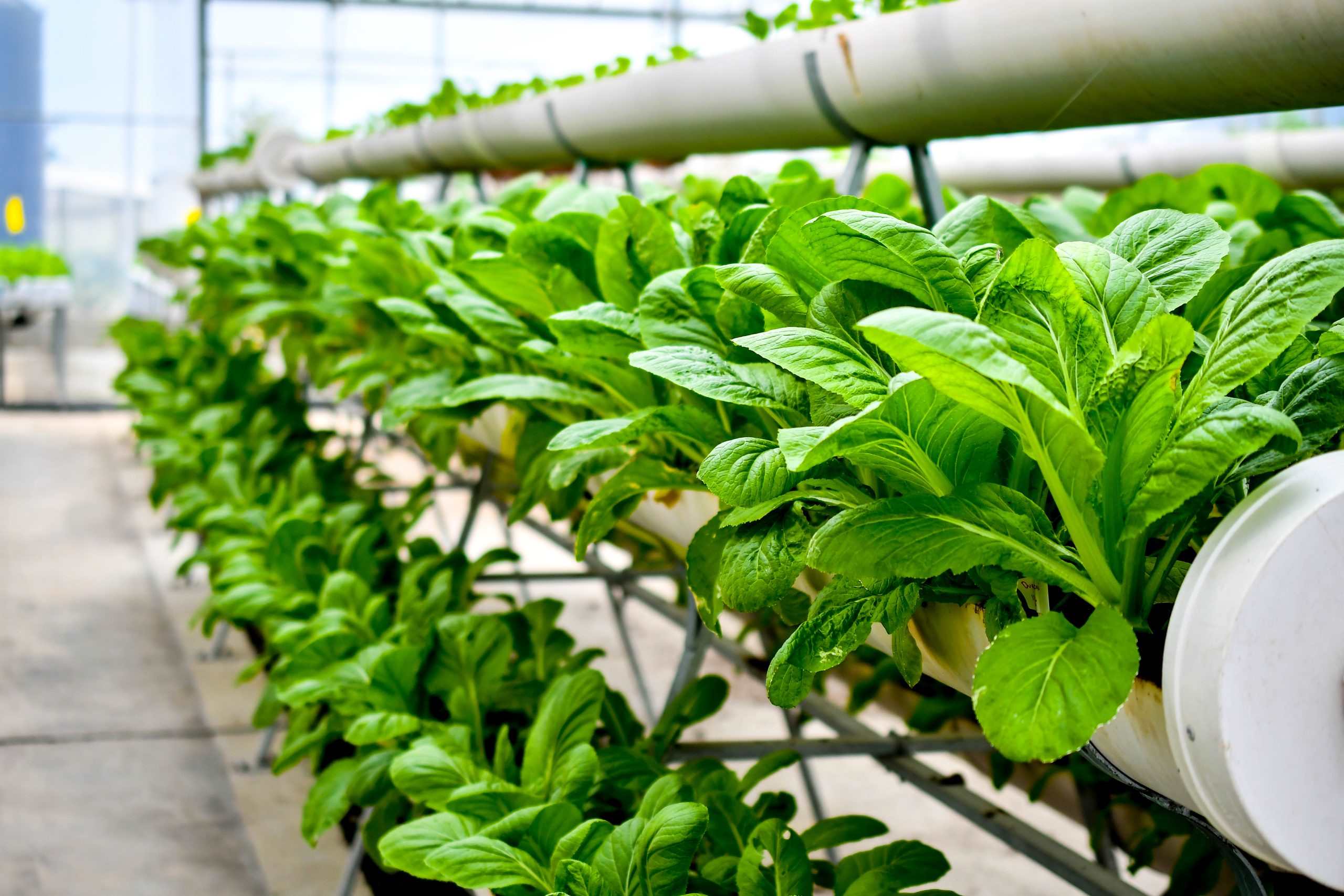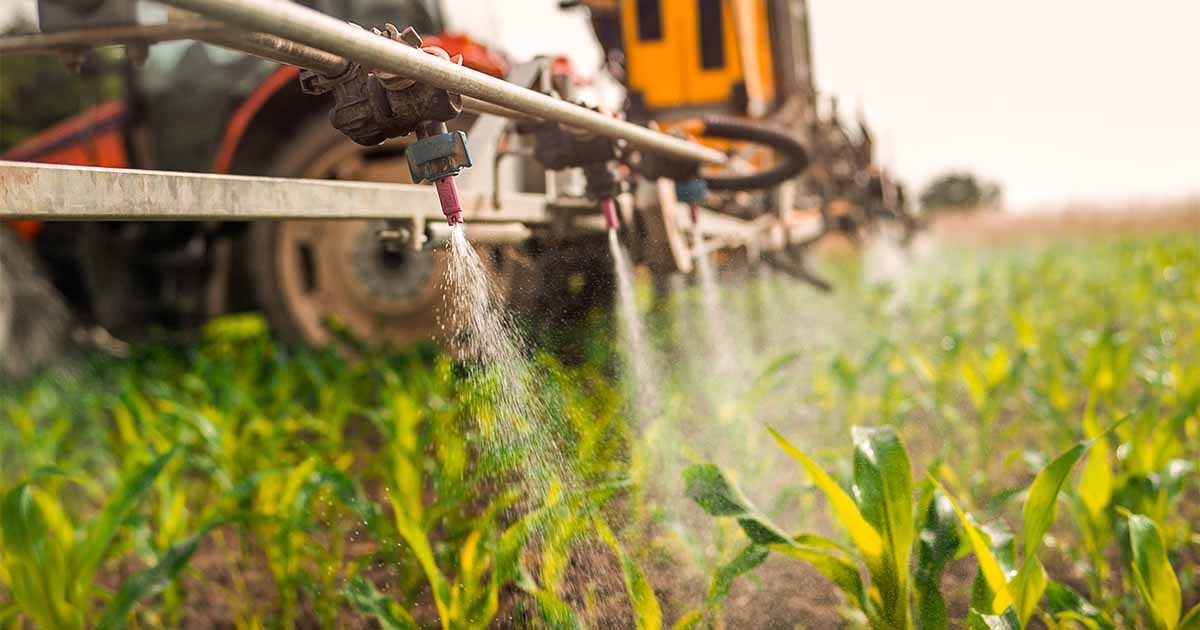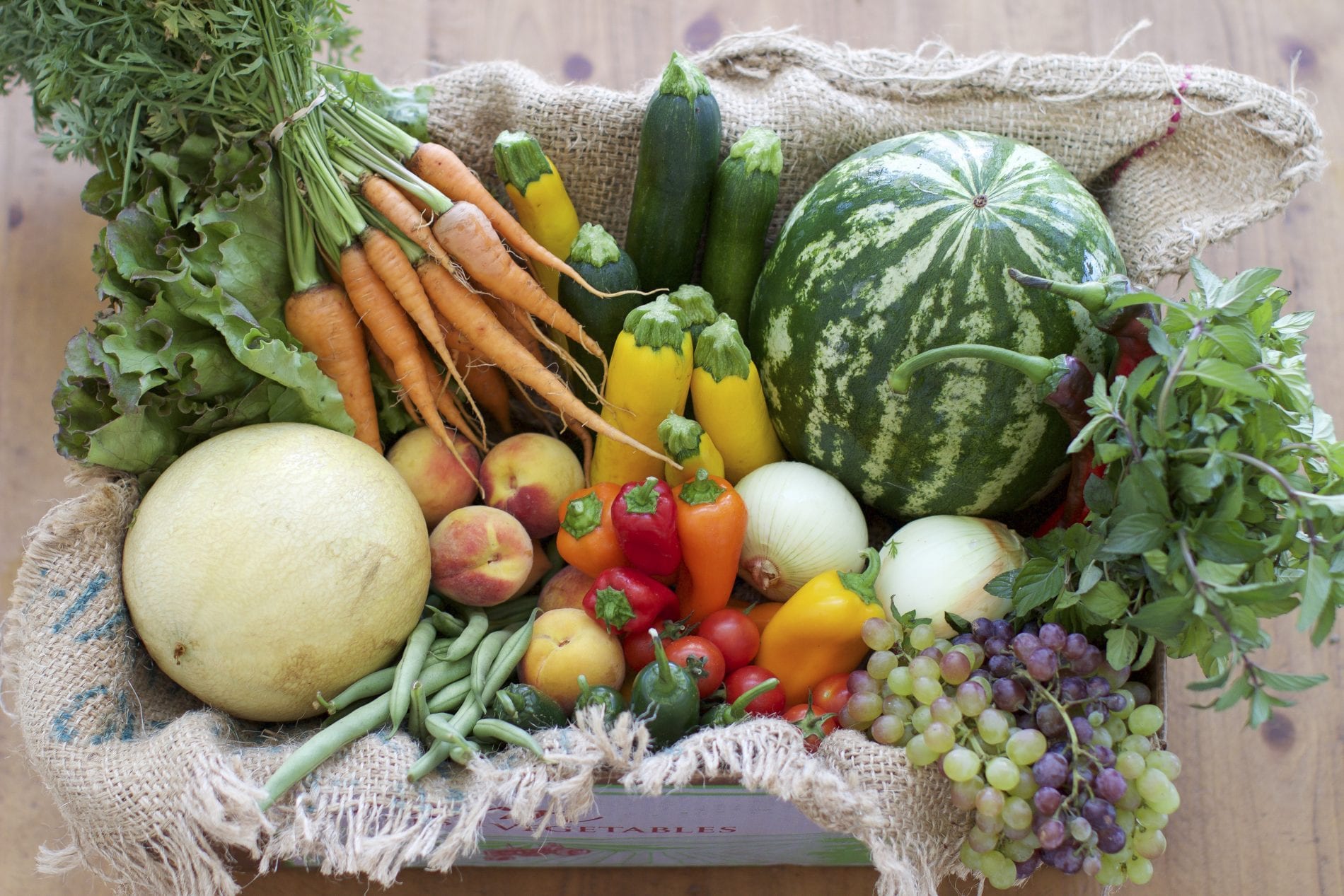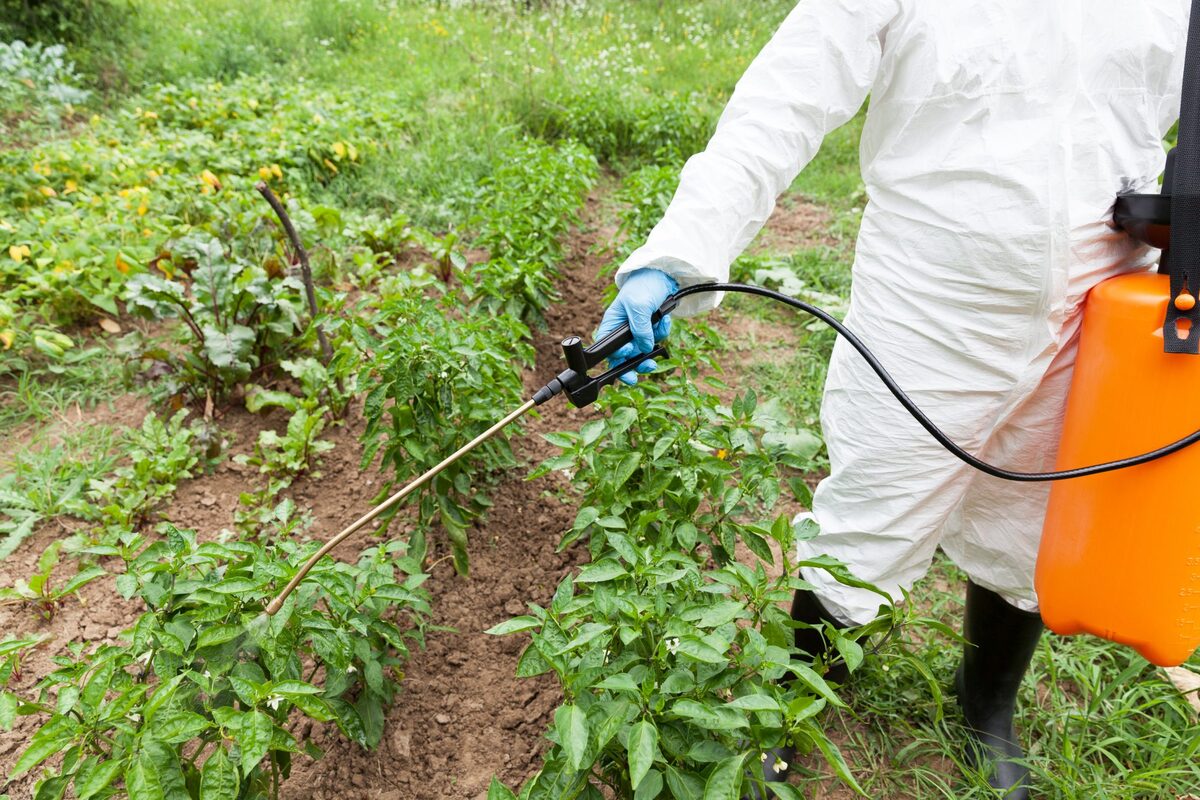Home>Gardening News and Trends>Latest News>What Pesticides Are Used In Organic Farming
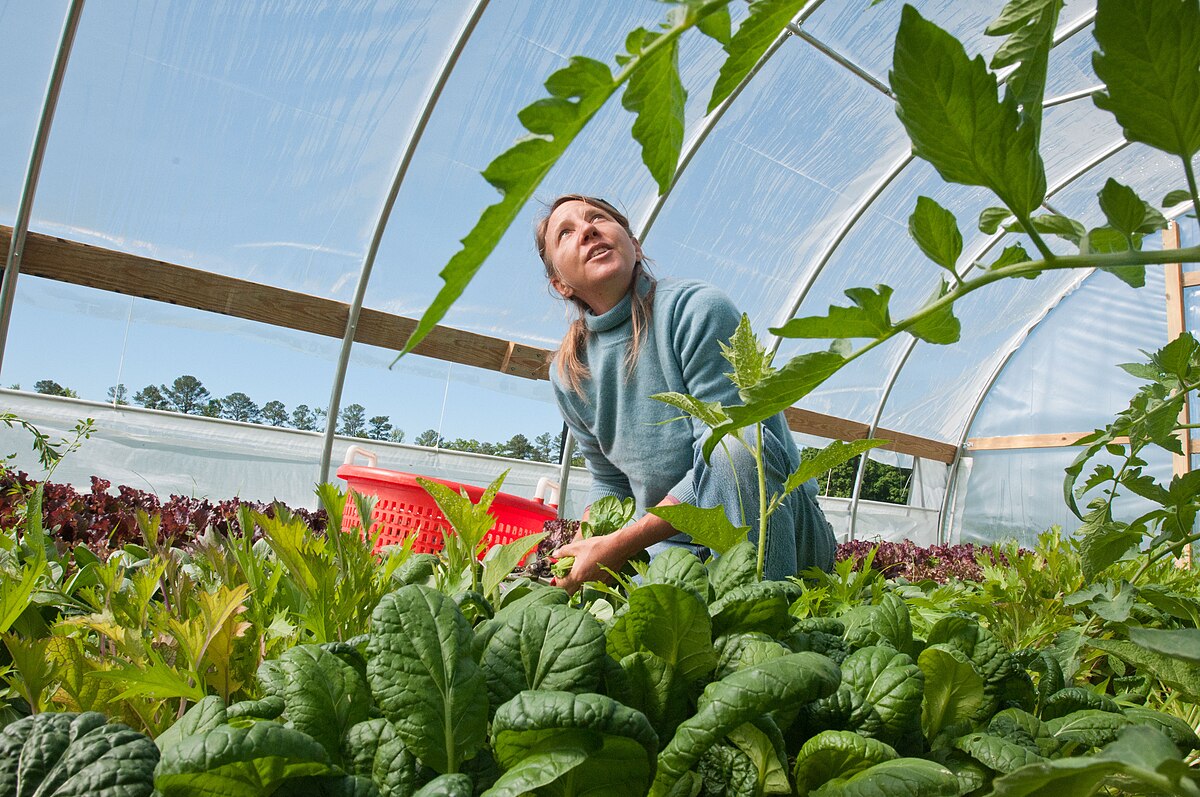

Latest News
What Pesticides Are Used In Organic Farming
Modified: January 22, 2024
Discover the latest news on the pesticides used in organic farming. Stay informed about the sustainability and health benefits of organic practices.
(Many of the links in this article redirect to a specific reviewed product. Your purchase of these products through affiliate links helps to generate commission for Chicagolandgardening.com, at no extra cost. Learn more)
Table of Contents
Introduction
Organic farming has gained significant popularity in recent years as people become more concerned about the impact of conventional agriculture on the environment and human health. With its focus on sustainable practices, organic farming aims to minimize the use of synthetic inputs, such as fertilizers and pesticides, and instead relies on natural methods to enhance soil health and manage pests.
In the realm of pest management, organic farming utilizes a range of techniques to control pests while minimizing harm to the environment and human beings. While pesticides are generally associated with conventional farming, organic farming also makes use of specific types of pesticides to combat pest infestations.
This article will explore the use of pesticides in organic farming, discussing the types of pesticides permitted, their benefits, and limitations. It is important to note that the use of pesticides in organic farming is highly regulated and intended to be used as a last resort when other prevention and control methods have failed.
By understanding the role of pesticides in organic farming, we can gain insight into the complexities and considerations involved in sustainable pest management practices.
Definition of Organic Farming
Organic farming refers to a holistic approach to agriculture that prioritizes the use of natural and sustainable methods to cultivate crops and raise livestock. It is an agricultural system that strives to work in harmony with nature, avoiding the use of synthetic chemicals, genetically modified organisms (GMOs), antibiotics, and growth hormones.
Central to the concept of organic farming is the preservation and enhancement of soil health. Organic farmers focus on building and maintaining soil fertility through practices such as crop rotation, cover cropping, and the application of natural fertilizers, such as compost and manure.
In addition to soil health, organic farming also emphasizes biodiversity. Farmers encourage the presence of beneficial insects, birds, and other wildlife to assist in pest control and ecological balance.
Organic farming standards and certifications vary from country to country, but they generally prohibit the use of synthetic pesticides, herbicides, and fungicides. Instead, organic farmers rely on an integrated pest management (IPM) approach that includes preventive measures, cultural practices, and the use of approved pesticides when necessary.
The goal of organic farming is not only to produce food that is free of harmful chemicals but also to foster a sustainable and environmentally friendly food system. By embracing organic farming practices, farmers aim to reduce their impact on the environment, reduce soil erosion, conserve water resources, and promote the overall well-being of ecosystems.
The Use of Pesticides in Organic Farming
Although organic farming emphasizes natural and sustainable practices, it is important to recognize that controlling pests without any pesticide use can be a challenge. While prevention measures and cultural practices are key components of organic pest management, there are instances when the use of pesticides becomes necessary to protect crops from devastating pest infestations.
Organic farming allows for the use of certain pesticides that are derived from natural sources and have minimal impact on the environment. These approved pesticides undergo rigorous testing and evaluation to ensure their safety and compatibility with organic farming principles.
Organic farmers must adhere to strict guidelines and regulations when it comes to pesticide use. Pesticides are only used as a last resort when other methods have failed to control pests. The focus is always on prevention, using techniques like crop rotation, physical barriers, and biological control to manage pests without resorting to pesticides.
When it comes to selecting pesticides, organic farmers prioritize those that have minimal impact on non-target organisms and the environment. They choose pesticides with short persistence, meaning they break down quickly and do not persist in the environment for long periods.
The use of pesticides in organic farming is governed by the principles of Integrated Pest Management (IPM). IPM combines various pest management strategies, including cultural, physical, and biological controls, along with the judicious use of approved pesticides. The goal is to achieve a balance between minimizing pest damage and minimizing pesticide use.
It is essential for organic farmers to regularly monitor their crops for pest presence and accurately identify the pest species. This information helps in determining the appropriate course of action, whether it is implementing cultural practices, releasing beneficial insects, or applying approved pesticides.
Overall, organic farming recognizes the need for responsible and sustainable pest management. While pesticides are used in organic farming, their use is carefully regulated to ensure minimal environmental impact and to protect human health. The focus remains on preventing pest infestations through ecologically sound practices, with pesticide application being a last resort when all other measures have been exhausted.
Types of Pesticides Used in Organic Farming
Organic farming employs a variety of pesticides derived from natural sources to manage pest infestations effectively while adhering to its sustainable and environmentally-friendly principles.
Here are some commonly used types of pesticides in organic farming:
- Neem oil: Derived from the neem tree, neem oil is a broad-spectrum insecticide and fungicide. It disrupts the growth and reproductive cycles of pests and inhibits the development of fungal pathogens.
- Pyrethrin: Derived from the flowers of certain chrysanthemum species, pyrethrin is an effective botanical insecticide that targets a wide range of insect pests. It acts by affecting the nervous systems of insects.
- Bacillus thuringiensis (Bt): Bt is a naturally occurring soil bacterium that produces proteins toxic to certain insects. Organic farmers use Bt formulations targeting specific insects, such as caterpillars, to control pest populations.
- Copper-based fungicides: Copper-based fungicides, such as copper sulfate, are used in organic farming to control fungal diseases on crops. These formulations act as protective barriers and inhibit the growth and spread of fungal pathogens.
- Sulfur: Sulfur is a widely used organic pesticide and fungicide that controls various pests and fungal diseases. It works by disrupting the cellular structure and metabolic processes of pests and pathogens.
It’s important to note that these pesticides used in organic farming must meet specific criteria and undergo rigorous testing and evaluation to ensure their safety and compatibility with organic practices. They are selected for their minimal impact on non-target organisms, low persistence in the environment, and effectiveness in managing pests.
Organic farmers must also follow guidelines regarding the frequency and timing of pesticide application, ensuring that it is done strategically to minimize any potential adverse effects.
By utilizing these approved pesticides judiciously, organic farmers are able to strike a balance between effectively managing pest populations and maintaining the integrity of their organic farming practices.
Neem Oil
Neem oil is a highly versatile and commonly used pesticide in organic farming. Derived from the seeds of the neem tree (Azadirachta indica), neem oil has been used for centuries in traditional medicine and agriculture due to its natural insecticidal and fungicidal properties.
One of the key benefits of neem oil is its broad-spectrum activity against a wide range of pests. It acts as both an insecticide and a fungicide, making it a valuable tool for organic farmers to combat various pest and disease problems.
Neem oil works by disrupting the growth and reproductive cycles of pests. It contains compounds called azadirachtin and other limonoids that interfere with insect feeding, molting, and egg-laying. This disrupts the pests’ ability to develop and reproduce, effectively reducing their populations.
In addition to its insecticidal properties, neem oil also possesses fungicidal effects. It inhibits the growth and development of fungal pathogens by disrupting their cell walls and metabolic processes. This makes it an effective tool for managing fungal diseases on crops.
Neem oil is considered safe for beneficial insects, such as bees and ladybugs, as it primarily targets pests. However, it is important to use neem oil judiciously and follow label instructions to minimize any potential impact on beneficial organisms.
Furthermore, neem oil is biodegradable and breaks down into non-toxic compounds relatively quickly. This makes it an environmentally friendly choice for organic farmers who are committed to sustainable practices.
When using neem oil, organic farmers typically dilute it with water and apply it as a spray on the foliage of plants. The frequency and timing of application depend on the pest or disease being targeted, as well as the specific crop being treated.
While neem oil is an effective pesticide, it is important to note that it should not be used in excessive amounts or as a preventative measure. Organic farmers integrate neem oil into their pest management strategy only when necessary and as part of an integrated approach that includes other cultural and preventive practices.
Overall, neem oil is a valuable tool in organic farming, providing an effective and environmentally friendly solution for managing pests and diseases. Its natural properties make it a popular choice among organic farmers striving to strike a balance between effective pest control and maintaining the integrity of their organic practices.
Pyrethrin
Pyrethrin is a natural insecticide derived from the flowers of certain chrysanthemum species, particularly Chrysanthemum cinerariifolium and Chrysanthemum cinerariifolium. With its broad-spectrum activity and low toxicity to mammals, pyrethrin is commonly used in organic farming for pest control.
Pyrethrin works by targeting the nervous systems of insects. It acts upon contact or ingestion, disrupting the normal functioning of insect nerve cells. This leads to paralysis and eventual death of the pest.
One of the major advantages of pyrethrin is its rapid breakdown in sunlight and soil, making it a desirable choice for organic farmers who prioritize sustainability and environmental stewardship. It breaks down into non-toxic compounds within hours or days, minimizing its impact on the environment.
Another notable characteristic of pyrethrin is its short residual activity. It is effective against pests immediately after application but loses its potency relatively quickly, requiring re-application to maintain efficacy. This short residual activity reinforces its low environmental persistence and reduces the risk of accumulation in the ecosystem.
Pyrethrin is most effective against flying and crawling insects, making it a valuable tool for managing pests such as mosquitoes, flies, aphids, beetles, and caterpillars. It can be used on various crops including vegetables, fruits, and ornamental plants, providing an essential solution for organic farmers in pest control.
When using pyrethrin, organic farmers must carefully read and follow label instructions to achieve optimum results. The timing and frequency of application depend on the specific pest being targeted and the crop being treated. It is crucial to apply pyrethrin when pests are actively present to ensure its effectiveness.
While pyrethrin is generally considered safe for humans and animals due to its low toxicity, it is important to exercise caution during application. Direct inhalation or contact with concentrated pyrethrin can cause irritation or allergic reactions in some individuals. Therefore, proper protective measures, such as gloves and masks, should be taken when handling and applying pyrethrin.
Overall, pyrethrin is an invaluable tool for organic farmers, providing effective control against a wide range of pests while minimizing the impact on the environment. Its natural origin and rapid breakdown make it an ideal choice for those aiming to maintain sustainable and environmentally-conscious farming practices.
Bacillus thuringiensis (Bt)
Bacillus thuringiensis (Bt) is a naturally occurring soil bacterium that has been widely used in organic farming as a biological control agent. It is known for its effectiveness in targeting specific pests while posing minimal risk to non-target organisms and the environment.
Bt produces a toxin known as delta-endotoxin, which is toxic to certain insects. This toxin specifically targets the digestive systems of susceptible pests, causing damage to their gut lining and leading to paralysis and death.
One of the key advantages of using Bt in organic farming is its specificity. Different strains of Bt target specific pest groups, such as caterpillars, mosquitoes, and beetles, allowing farmers to precisely control pest populations without harming beneficial insects or other organisms.
Bt formulations are available in various forms, including liquid concentrates, dusts, and granules. Organic farmers can choose the most suitable formulation for their specific crop and pest control needs.
Application methods for Bt may vary depending on the target pest and crop. It is commonly applied as a foliar spray, targeting the pests’ feeding areas. The timing of application is crucial, as it should coincide with the susceptible stage of the pest’s life cycle.
One of the key benefits of using Bt in organic farming is its safety to humans, animals, and the environment. It has a long history of use and extensive research has been conducted to confirm its low toxicity and minimal impact on non-target organisms.
However, it is crucial for organic farmers to utilize Bt responsibly to prevent the development of resistance in pest populations. This can be achieved by rotating Bt with other pest control methods and ensuring targeted and strategic application.
While Bt is highly effective against specific pests, it is important to note that it may not be as effective against all pest species. It is most commonly used for the control of pest caterpillars, such as cabbage worms and corn borers.
Overall, Bacillus thuringiensis (Bt) is an important tool in organic farming, providing a selective and effective means of pest control. Its specific action, minimal environmental impact, and safety to non-target organisms make it a valuable asset for organic farmers striving to manage pest populations in a sustainable and responsible manner.
Copper-based Fungicides
Copper-based fungicides are commonly used in organic farming to control fungal diseases on crops. Copper has broad-spectrum activity against a wide range of fungal pathogens and is an effective tool for managing diseases such as blight, anthracnose, and downy mildew.
Copper-based fungicides work by creating a protective barrier on plant surfaces, preventing fungal spores from germinating and penetrating the plant’s tissues. They inhibit the growth and spread of fungal pathogens by disrupting their cellular structure and metabolic processes.
One of the key advantages of copper-based fungicides is their longevity. Once applied to plants, they adhere to the foliage, providing extended protection against fungal diseases. This makes them particularly useful in humid climates or during periods of high disease pressure.
Organic farmers typically use copper-based fungicides as part of a preventive strategy, applying them before disease symptoms appear or during early stages of infection. Timely application and regular intervals are essential for maintaining their effectiveness.
However, it is important to exercise caution when using copper-based fungicides. While copper is naturally occurring and essential for plant growth, excessive or improper use can lead to copper accumulation in the soil and potential toxicity to plants and beneficial microorganisms.
Organic farmers must carefully follow recommended application rates and timing guidelines to minimize the risk of copper build-up in the environment. They should also monitor soil pH levels, as excessive copper applications can lower pH and affect nutrient availability.
Copper-based fungicides are available in various formulations, including liquid concentrates, wettable powders, and suspensions. The choice of formulation depends on the specific crop and disease being targeted.
When using copper-based fungicides, protective measures such as gloves and masks should be taken to minimize direct contact. Organic farmers should also be mindful of the potential impact on beneficial organisms, such as bees and other pollinators.
Overall, copper-based fungicides are a valuable asset in organic farming, providing effective control against fungal diseases while adhering to organic principles. Their protective action, longevity, and broad-spectrum efficacy make them an essential tool for organic farmers striving to cultivate healthy and disease-resistant crops.
Sulfur
Sulfur is a widely used organic pesticide and fungicide in organic farming. It has been used for centuries due to its efficacy in managing pests and fungal diseases on plants. Sulfur is naturally occurring and has low toxicity to humans and animals, making it a popular choice among organic farmers.
Sulfur works by disrupting the cellular structure and metabolic processes of pests and fungal pathogens. It interferes with their respiration and biochemical reactions, effectively inhibiting their growth and development.
One of the key advantages of sulfur is its broad-spectrum activity against a wide range of pests and fungal diseases. It is commonly used for the control of mites, aphids, powdery mildew, and rust.
Organic farmers typically apply sulfur as a fine dust or spray, ensuring thorough coverage on plant surfaces. It is important to follow label instructions regarding the correct dosage and application frequency to prevent any potential phytotoxicity or damage to plants.
One of the notable characteristics of sulfur is its relatively short persistence in the environment. It breaks down into non-toxic compounds relatively quickly, minimizing any long-term impact on the ecosystem.
While sulfur is generally considered safe to use, it is essential for organic farmers to take precautions during application. Direct inhalation or contact with concentrated sulfur can cause irritation or respiratory issues. Proper protective measures, such as gloves and masks, should be taken when handling and applying sulfur.
Sulfur applications are typically avoided during periods of high temperature or drought, as it can cause plant stress. It is best to apply sulfur in cooler temperatures, usually in the morning or evening, to minimize the risk of adverse effects.
Furthermore, sulfur should not be applied to sulfur-sensitive crops, such as certain varieties of apples, peaches, and cucurbits. Organic farmers must be mindful of crop-specific sensitivities and consult crop-specific guidelines for sulfur use.
Overall, sulfur is a valuable tool in organic farming, providing effective control against pests and fungal diseases. Its natural origin, low toxicity, and relatively short persistence make it an environmentally friendly choice for organic farmers striving to manage crop health and maintain sustainable practices.
Benefits and Limitations of Using Pesticides in Organic Farming
The use of pesticides in organic farming offers certain benefits and limitations that organic farmers must carefully consider in their pest management strategies. While organic farmers aim to minimize pesticide use, there are instances when their use becomes necessary. Here, we discuss the benefits and limitations associated with using pesticides in organic farming.
Benefits:
- Effective pest control: Pesticides, when used judiciously, can effectively control pest populations and reduce crop damage. They provide organic farmers with an additional tool to combat severe pest infestations.
- Targeted pest management: Organic farmers can choose specific approved pesticides that target particular pest species or groups, minimizing harm to beneficial insects and predators. This targeted approach allows for selective pest control while preserving the overall ecological balance.
- Increased crop yields: Pesticide use in organic farming can lead to increased crop yields by preventing or minimizing pest damage. This can contribute to improved profitability for organic farmers.
- Time and labor efficiency: In certain situations, pesticide application can save time and labor for organic farmers by quickly addressing pest issues and reducing the need for manual pest control methods.
Limitations:
- Environmental impact: Although pesticides used in organic farming are derived from natural sources, they can still have an impact on the environment. Organic farmers must ensure proper application and consider potential risks to non-target organisms and ecosystems.
- Potential development of resistance: Prolonged or incorrect use of pesticides can lead to the development of pest resistance, rendering them less effective over time. Organic farmers must use pesticides strategically and rotate them with other pest control methods to mitigate resistance development.
- Pesticide selection and availability: Organic farmers have a limited range of approved pesticides available to them, and their effectiveness can vary depending on the crop and pest species. Organic farmers need to carefully choose appropriate pesticides that are compatible with organic farming practices.
- Regulatory compliance: The use of pesticides in organic farming is highly regulated, and organic farmers must adhere to strict guidelines and certification requirements. This includes record-keeping, proper application techniques, and compliance with allowable residue levels.
It is important for organic farmers to balance the potential benefits of using pesticides with the organic farming principles of sustainability and environmental stewardship. The prudent use of approved pesticides, combined with preventive measures and integrated pest management strategies, can help organic farmers effectively manage pests while maintaining the integrity of organic farming practices.
Conclusion
Organic farming, with its emphasis on sustainable practices and minimal use of synthetic inputs, has gained significant popularity in recent years. While the use of pesticides in organic farming is highly regulated and limited, there are instances when their use becomes necessary to manage pest infestations effectively.
Organic farmers have access to a range of approved pesticides derived from natural sources, such as neem oil, pyrethrin, Bacillus thuringiensis (Bt), copper-based fungicides, and sulfur. These pesticides offer organic farmers effective tools for controlling pests and fungal diseases while minimizing harm to the environment and non-target organisms.
By utilizing these approved pesticides judiciously and integrating them with preventive measures and cultural practices, organic farmers can strike a balance between effective pest management and maintaining the integrity of organic farming principles.
While there are benefits to using pesticides in organic farming, such as increased crop yields and targeted pest control, there are limitations and considerations as well. Organic farmers must be mindful of potential environmental impacts, the potential development of resistance, limited pesticide selection, and compliance with regulations.
Overall, the use of pesticides in organic farming is a complex and carefully managed practice. Organic farmers must prioritize sustainable pest management practices while ensuring the health and productivity of their crops. By embracing a holistic approach to pest management and integrating pesticides as part of an integrated pest management strategy, organic farmers can effectively control pests while staying true to the principles of organic farming.

